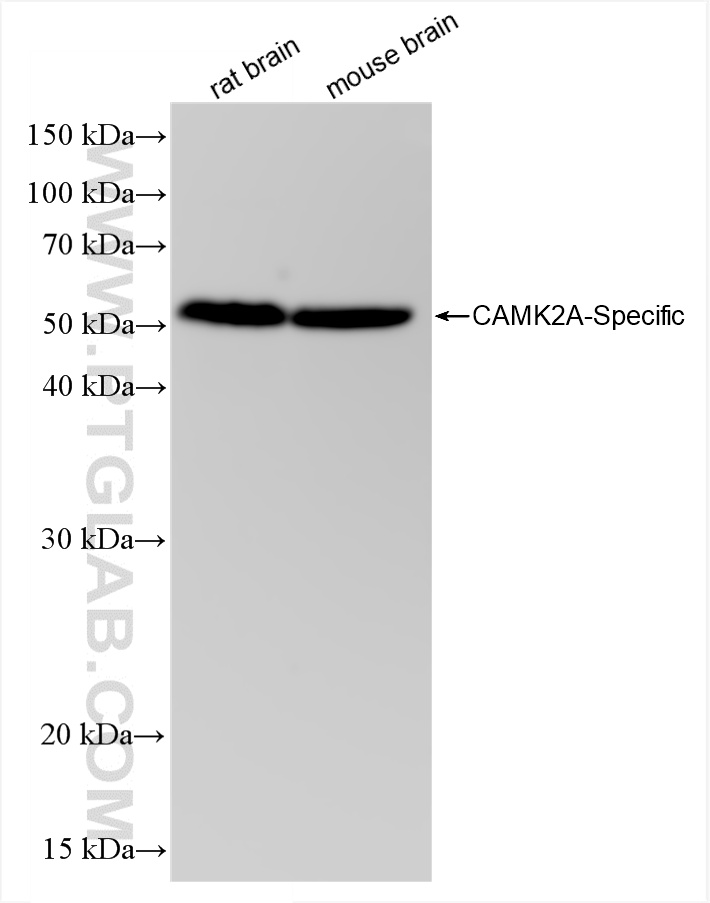验证数据展示
经过测试的应用
| Positive WB detected in | rat brain tissue, mouse brain tissue |
推荐稀释比
| 应用 | 推荐稀释比 |
|---|---|
| Western Blot (WB) | WB : 1:500-1:1000 |
| It is recommended that this reagent should be titrated in each testing system to obtain optimal results. | |
| Sample-dependent, Check data in validation data gallery. | |
产品信息
85197-1-RR targets CAMK2A-Specific in WB, ELISA applications and shows reactivity with human, mouse, rat samples.
| 经测试应用 | WB, ELISA Application Description |
| 经测试反应性 | human, mouse, rat |
| 免疫原 |
Peptide 种属同源性预测 |
| 宿主/亚型 | Rabbit / IgG |
| 抗体类别 | Recombinant |
| 产品类型 | Antibody |
| 全称 | calcium/calmodulin-dependent protein kinase II alpha |
| 别名 | CAMK2A, CaMKII alpha, CAMKA, CAMK2, Calcium/calmodulin-dependent protein kinase type II subunit alpha |
| 计算分子量 | 55 kDa |
| 观测分子量 | 50-55 kDa |
| GenBank蛋白编号 | NM_015981 |
| 基因名称 | CaMKII alpha |
| Gene ID (NCBI) | 815 |
| 偶联类型 | Unconjugated |
| 形式 | Liquid |
| 纯化方式 | Protein A purfication |
| UNIPROT ID | Q9UQM7 |
| 储存缓冲液 | PBS with 0.02% sodium azide and 50% glycerol, pH 7.3. |
| 储存条件 | Store at -20°C. Stable for one year after shipment. Aliquoting is unnecessary for -20oC storage. |
背景介绍
CaMKII alpha, also named CAMKA and KIAA0968, belongs to the protein kinase superfamily, CAMK Ser/Thr protein kinase family, and CaMK subfamily. CaM-kinase II (CAMK2) is a prominent kinase in the central nervous system that may function in long-term potentiation and neurotransmitter release. It is a member of the NMDAR signaling complex in excitatory synapses it may regulate NMDAR-dependent potentiation of the AMPAR and synaptic plasticity. This antibody is specific to CAMK2A.
实验方案
| Product Specific Protocols | |
|---|---|
| WB protocol for CAMK2A-Specific antibody 85197-1-RR | Download protocol |
| Standard Protocols | |
|---|---|
| Click here to view our Standard Protocols |


